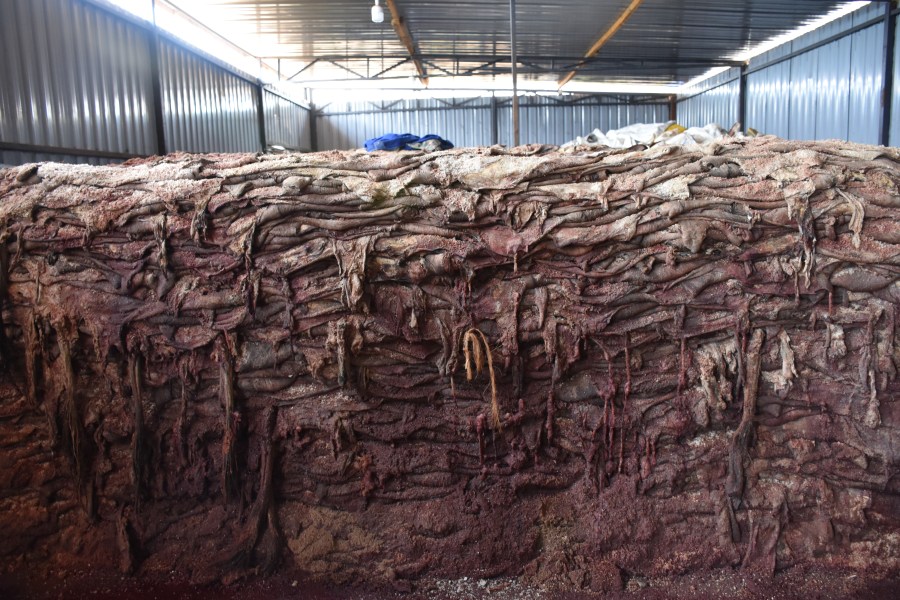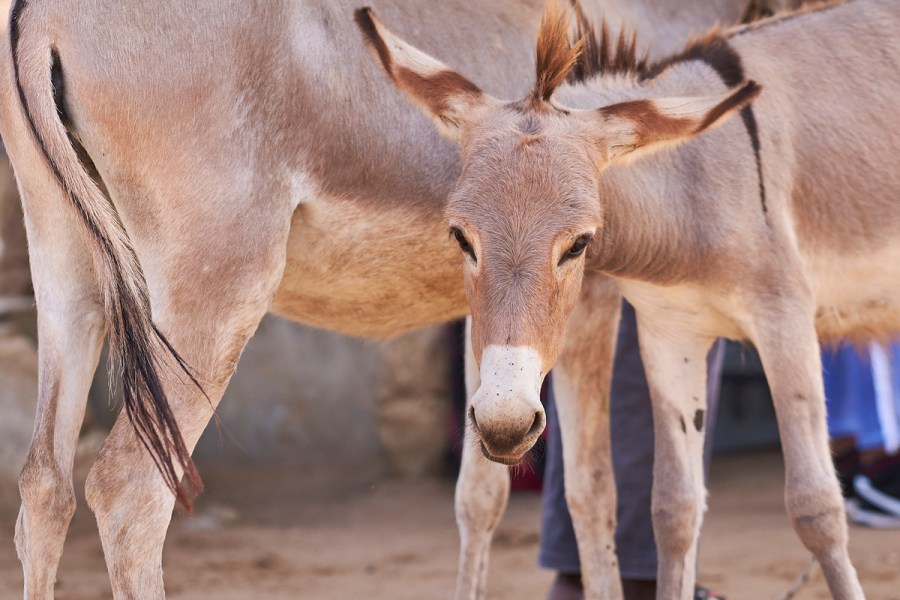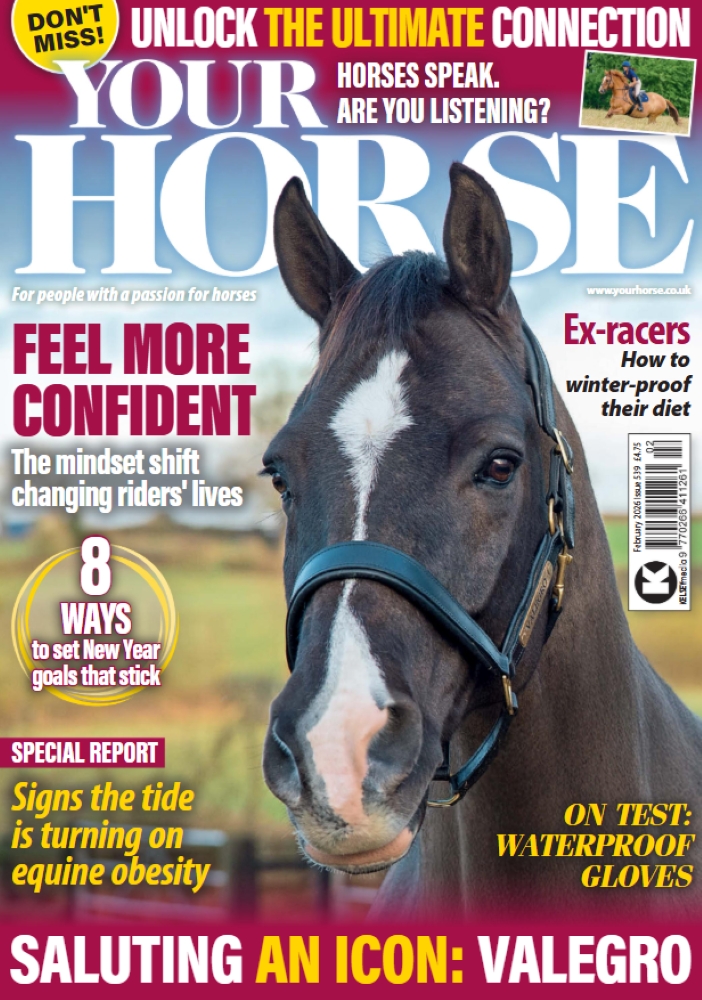When you think of a donkey, what first comes to mind? For some it’s their remarkable memory and intelligence; for others it’s their cautious nature and insistent bray.
For most, we imagine them in abundance. Donkeys feel omnipresent, a species you might drive past in the English countryside or see pulling a cart abroad.
They are humble, patient, and steadfast — quiet workers that have stood beside humans for thousands of years, around the world.
The truth is that, whilst there are around 60 million donkeys worldwide, these animals face a dark, existential threat which is only accelerating. A population being eclipsed by human need for profit — driven by a global donkey skin trade.
This is a trade slaughtering over six million donkeys each year for their skins to make ‘ejiao’, a herbal remedy used in supplements and skincare with no proven health benefits.
Production is driven by consumers from China, and with demand rising, the nation is now outsourcing to new areas of the world, including Africa.
Erasing a species
With donkeys being slaughtered in brutally unimaginable ways to meet the quota for this trade across the African continent, communities who rely on them to fetch water, earn an income and support their families are being stripped of their livelihoods and dignity.
But the most chilling statistic prevails. New research conducted by working animal charity Brooke has shown that Africa is at risk of losing half its donkey population by 2040 if the trade continues at its current rate.
The loss would devastate rural economies, deepen poverty and erase a species so deeply tied to our own.
This year, I travelled to Kenya with Brooke to meet communities, experts and policymakers who each shared the same message: the donkey skin trade must end.

Bludgeoned to death
Despite a continent-wide ban on the trade in 2024 thanks to influence from Brooke, illegal trade persists. The industry has moved underground within a dangerous production ring that exploits desperation to earn money and targets those challenging it.
In Kenya, I met with an informant who risks their life every day to expose the illegal trade to local police. They described how donkeys are stolen from their owners or sold under duress, then beaten, bludgeoned and slaughtered — often with their carcasses left behind in the bush.
Slaughterhouses are scenes of the upmost cruelty, with skulls and bones scattered across the ground, a haunting reminder of neglect.
Donkeys are the backbone of rural households. They plough fields, carry goods and fuel and bring water security.
But as the trade ripples across Africa, families are losing their livelihoods — with women and girls often forced to take their place carrying crippling loads, losing time for education and income.
I was not prepared for what I saw
I knew the horrors of the donkey skin trade before stepping foot in Africa, but I was not even remotely prepared for what I saw.
Stepping over the skulls of donkeys who had been beaten to death, able to make out just how badly they had been beaten from markings on their bones, I was lost for words.
I spoke with Veronica, a woman whose donkeys were stolen and murdered near her home in Nairobi. She viewed them as her children and was so traumatised that she didn’t speak until another rescue donkey was later rehomed with her family.
I also met with a women’s support group led by Brooke who shared their experiences of losing donkeys to the trade.
Many of their husbands had passed away, leaving them to take on all domestic work and walk miles with heavy loads for their families. Their resilience was inspiring, but their grief was unmistakable. We all shared tears together.

Serious risk of spreading disease
Not only does the skin trade fuel gender inequality and a vicious cycle of poverty (like a sickening, reverse Robin Hood scenario), it also drives an illegal market where donkey meat is mislabelled in the food chain, posing a serious risk of disease spread between people and animals.
This is a terrifying public health concern for Kenyan people, who have no idea if the meat they’re consuming has been mispackaged and concealed.
Whilst Africa remains the primary source of skins (both legally and illegally exported to China), the trade has spread across the globe, including South Asia and Latin America.
Ejiao products can be legally purchased online via Amazon and Etsy, with UK consumers contributing to global demand. Yet there are no proven health benefits to ejiao. Scientifically, you’d get the same value from chewing your nails!
This means that UK policymakers, retailers and consumers have a responsibility to be aware of and reduce their role in perpetuating this trade.
Bans alone are not enough
Bans alone are not enough. Illegal trade continues, especially across borders and in shadow networks, with enforcement of existing bans still a challenge.
Brooke is calling for a global ban by working through regional bodies and individual countries, urging consumers, policymakers, and businesses to act — just as the world has done with ivory and rhino horn.
We must act now to mobilise action before irreversible damage occurs to both donkey populations and vulnerable communities.
So, remember, donkeys are not abundant. These are animals facing senseless violence that they cannot control. They deserve protection, compassion and justice.
Watch my new documentary exposing the devastating impact of the donkey skin trade on Africa, in partnership with Brooke, here.
Images © Brooke








